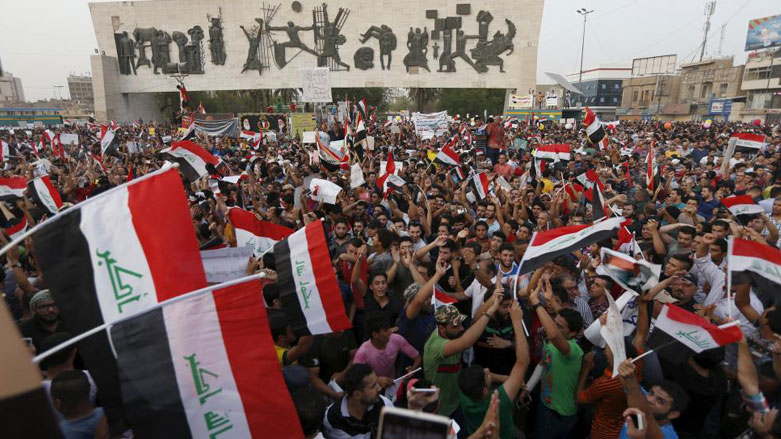Only difference between pre and post-2003 Iraqi rulers is beards, prayers: Kurdish official

ERBIL, Kurdistan Region (Kurdistan 24) – A Kurdish official on Monday claimed there is no difference between former Iraqi rulers and post-2003 Iraqi leaders, stating their treatment toward the Kurds remains the same.
“The only difference is that the new ones have beards and pray,” said Saadi Pira, a member of the Patriotic Union of Kurdistan (PUK) Politburo and spokesperson of the party during a conference held at the Saladaddin University on Monday, sponsored by Kurdistan 24.
As one of the panelists, Pira discussed the upcoming referendum in Kurdistan scheduled for Sep 25 and the fate of the Kurdistan Region.
He noted that after the collapse of Saddam's dictatorship in Iraq in 2003, Kurds and other minority groups in Iraq hoped they would be a respite from the previous oppressive systems and a better future was in store.
“After 2003, the ethnic and religious groups in the Kurdistan Region and Iraq, including Turkmen and Christians, were relieved and hoped to participate in the establishment of a new Iraq by agreeing to the constitution,” Pira said. “Unfortunately, the Constitution was later neglected.”
“Fourteen years later [since the fall the autocratic government in Iraq], we notice few differences between the former and current rulers,” he continued.
The PUK spokesperson noted that the difference in appearance and faith, the former Baath regime being fiercely secular, was “not at all satisfying” to the people of Iraq in general, and the Kurds in particular.
“We have reached a level of sheer disappointment in Baghdad. The efforts put into building a new Iraq in 2003 were not aimed at producing the current one.”
Pira also added that the rights of the people of the Kurdistan Region guaranteed in the Constitution of Iraq are being taken away day after day, including the holding of important governmental posts in Baghdad.
“For this reason, we have decided to hold a referendum on independence for the Kurdistan Region and present the people's opinion, officially notifying Baghdad of our collective frustration with the current treatment of Kurds by the Iraqi Government.”
Kurdish officials have repeatedly stated that the Shia-led government has marginalized the Kurds and Sunni Iraqi from governing. They have emphasized that the rights of the people in the Kurdistan Region, secured in the Constitution of Iraq, are consistently violated and that the Kurds are treated as second-class citizens.
Baghdad cutting the Kurdistan Region's share of the federal budget in early 2014 had a significant impact in pushing the Kurdistan Regional Government (KRG) to seek independence and autonomy from the rest of the country as it weathered a severe financial crisis.
For many Kurds, the injustices they face at the hands of the federal Iraqi government will not end unless they peacefully achieve independence.
“We are choosing not to fight but to amicably divorce, and we will not resort to violence ... The referendum aims to spare Kurds from the never-ending spiral of violence in Iraq,” Pira concluded.
Editing by G.H. Renaud
